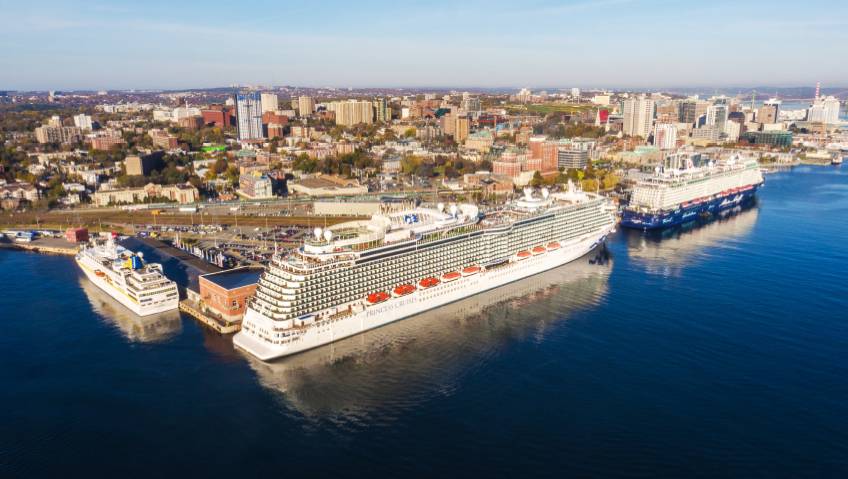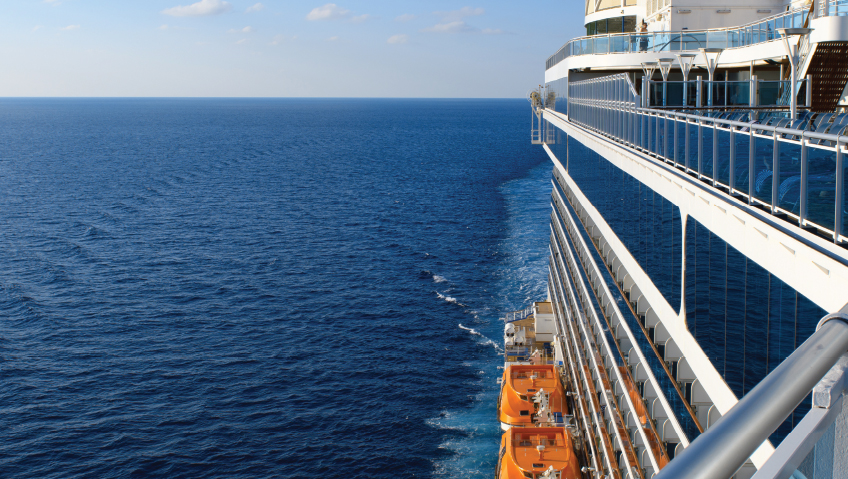The Atlantic Canada Cruise Association (ACCA), operating as Cruise Atlantic Canada, facilitates partnerships between several organizations focused on the concerns and well-being of the cruise ship tourism industry in Atlantic Canada. The association was established in the late 1990s as a destination marketing organization specifically designed for the cruise ship side of the local tourism sector.
Atlantic Canada is made up of four captivating provinces: New Brunswick, Newfoundland & Labrador, Nova Scotia, and Prince Edward Island. And each port of call in every province has its own flavor, much like the charming, beautiful French islands of Saint-Pierre et Miquelon.
The ACCA’s mission is to promote the sustainable growth of Atlantic Canada as a cruise destination through strategic leadership, collaboration, partnerships, and innovative marketing. “We are here to share our beautiful cruise destinations with the rest of the world,” ACCA Executive Director Sarah Rumley says.
The ACCA represents a dynamic regional partnership between ports, tourism operators, and the interests of cruise ships. These areas are brought together from across Atlantic Canada and supported by organizations like Parks Canada and the Atlantic Canada Opportunities Agency. Through this support, the ACCA can present itself cohesively to cruise lines and ensure Atlantic Canada is a preferred cruise destination in North America.
The ACCA has historically found great success in its myriad connections throughout the Atlantic provinces. In 2019, the association reports that Atlantic Canada welcomed over 873,000 cruise passengers at over 550 calls in the four Atlantic provinces. This stands as a significant portion of the three million cruise passengers welcomed by Canada altogether in 2019 across 1,400 calls. In Atlantic Canada, this generated roughly $157 million in direct spending in the region, along with the creation of over two thousand jobs.
Rumley notes that ACCA conducts an economic impact study every three years, which has shown a nearly fifty percent increase in economic impact in jobs and overall traffic. “2019 was a banner year for Atlantic Canada before the pandemic, [the area] saw tremendous growth trajectory from 2016-2019,” but now, attention is being paid to how to work back to those levels as cruises were welcomed back into the region in April 2022.
Amid the COVID-19 pandemic, cruise ships had to follow the most robust health and safety guidelines in preparation of restarting operations. Unlike other modes of transportation in tourism post-pandemic, cruise ships had to create and follow all-new safety protocols, as well as look at implementing regular testing and vaccination protocols in tune with the standards of the Public Health Agency of Canada and Transport Canada.
Now, the cruise industry has become a benchmark for safety. In the wake of pandemic restrictions, cruise ports across Canada redoubled efforts on safety and even formed national cruise committees to represent ports and tourism operators in taking a coast-to-coast approach to restarting cruise activity. These committees have included the Association of Canadian Port Authorities (ACPA), the cruise committee which represents ports, and the Tourism Industry Association of Canada (TIAC) National Cruise Committee, which represents tourism operators.
Rumley specifically praises the ACCA’s support from the Atlantic Canada Opportunities Agency, which gave the Association the flexibility to develop a three-year marketing and recovery plan. This includes all-new scenario planning, while looking into community and port readiness training models and global training expertise. The ACCA relies on the links within its organization to both survive tough times like the COVID-19 pandemic and then thrive and make the most of a comeback season like 2022.
The ACCA is beyond excited to be welcoming back cruise ships to Atlantic Canada. The first ship to return to the region was the Viking Octantis, which sailed to Charlottetown on April 22. Several other cruises made stops in other areas afterward for a much-vaunted return to normalcy for the industry. Atlantic Canada is part of the Canada New England itinerary, a schedule that usually includes New York, Boston, Maine, and the Saint Lawrence. The cruise season in the region typically spans from April until November.
Rumley feels that cruise guests are drawn to the authentic experiences, culture, culinary experiences, and world-class hospitality that only Atlantic Canada can offer and is anticipating approximately 450 calls to ports in this 2022 season. Autumn attracts tourists to look at brilliantly coloured leaves or “leaf-peeping,” as she puts it, and is the most popular time for this itinerary, so attention is paid to “lobsters, lighthouses, and leaves.” Cruise guests are just as excited as the industry to set sail again, and autumn in Atlantic Canada is an ideal time to do so.
The cruise industry has seen a strong return to business in 2022, which should be an indication that the Atlantic Canada region overall is back on track for steady growth, with more cruise calls and passengers to follow.
Many cruise passengers are familiar with major ports of call like Halifax, Charlottetown, Corner Brook, Saint John, St. John’s or Sydney, but niche ports are also important to the industry’s recovery. Atlantic Canada has a wide selection of these small ports that Rumley believes are part of the organization’s greatest opportunity. Such ports give cruise lines a new destination to visit, and even more opportunities lie in the currently exploding expedition and luxury markets, a segment of the cruise industry for smaller ships.
Getting smaller cruise ships into niche ports in a region like Atlantic Canada can provide direct economic impact to these niche port communities like Baddeck, Grand Manan Island, Louisbourg, Lunenburg, Pictou, Shelburne, St. Anthony, or Yarmouth. Beyond the season, Rumley sees a tremendous number of opportunities that are “literally ours to lose.” Or win.
The partners of the ACCA have come to expect big things on what the organization can provide, and Rumley believes that the strength of the ongoing relationships with ports, tourism operators, and cruise lines are why the industry is seeing such a positive rebound in the area. “We know we can deliver,” she affirms, as work is underway to close this year in a strong position and begin preparations for an even more successful 2023 season.






